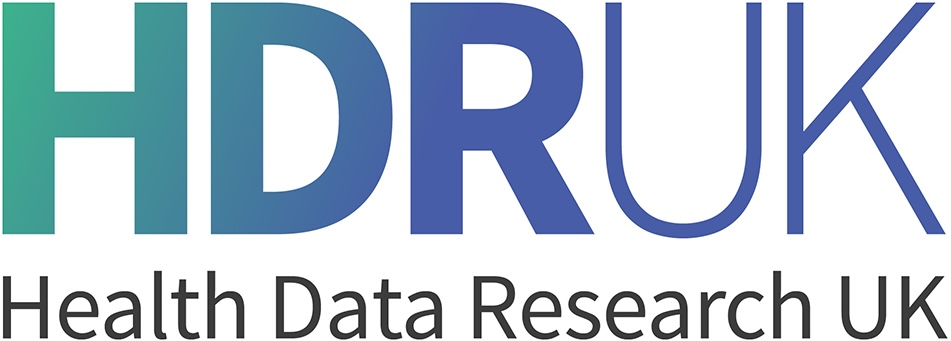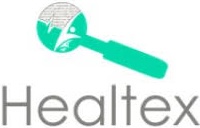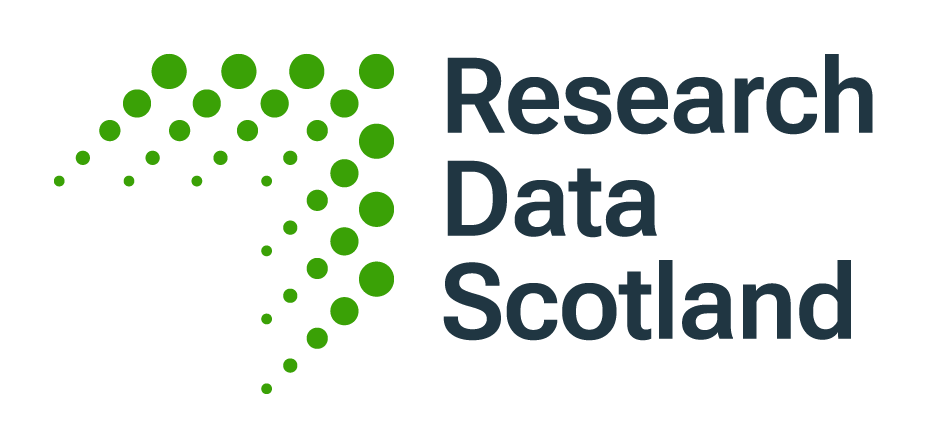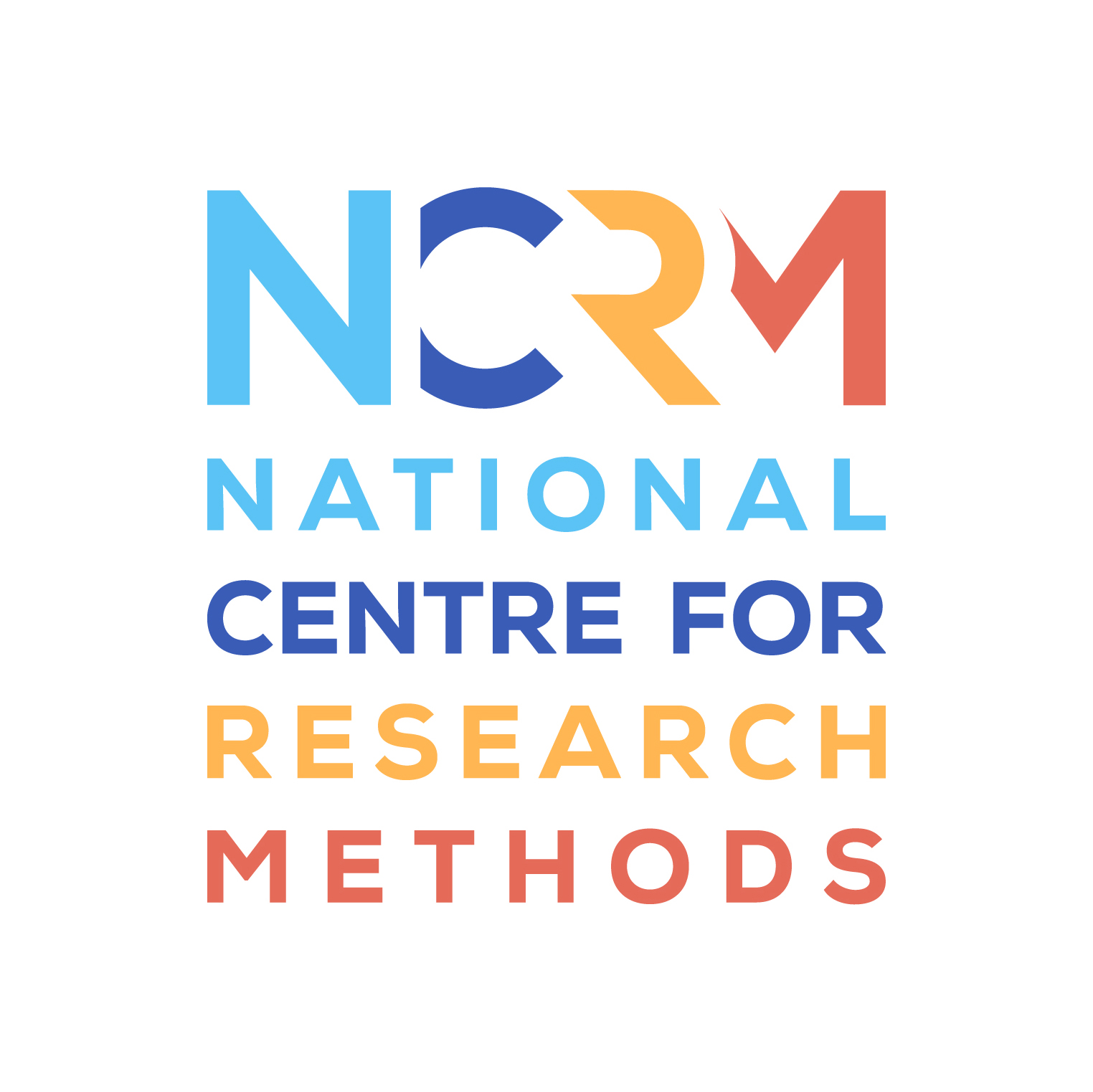Programme
Please Note: All the events happen in the Glasgow University Union building.
MONDAY, JUNE 16TH 2025
Workshop: Mental health and the New NLP
| 10:00-11:00 | Registration | Foyer outside Debates Chamber, the Glasgow University Union |
| 11:00-12:00 | Session 1 Chair:Honghan Wu, University of Glasgow
|
Debates Chamber, the Glasgow University Union |
| 12:00-13:00 | Session 2 Chair:Ben Holgate, King’s College London
|
Debates Chamber, the Glasgow University Union |
| 13:00-14:00 | Lunch | Debates Chamber, the Glasgow University Union |
| 14:00-15:15 | Session 3 Chair:Rashmi Patel, University of Cambridge
|
Debates Chamber, the Glasgow University Union |
| 15:15-15:45 | Coffee Break | Debates Chamber, the Glasgow University Union |
| 15:45-17:00 | Session 4 Chair:Beatrice Alex, University of Edinburgh
|
Debates Chamber, the Glasgow University Union |
TUESDAY, JUNE 17TH 2025
HealTAC day 1
| 09:30-10:00 | Registration/Breakfast | Foyer outside Debates Chamber, the Glasgow University Union |
| 10:00-10:05 | Welcome - chairs of HealTAC 2025 Chair: Honghan Wu, University of Glasgow |
Debates Chamber, the Glasgow University Union |
| 10:05-10:25 | Opening - Peter Harrison (HDR UK deputy CTO) Chair: Honghan Wu, University of Glasgow |
Debates Chamber, the Glasgow University Union |
| 10:25-11:10 | Keynote: Dr Alison O'Neil (Canon Medical Research Europe) Chair: Beatrice Alex, University of Edinburgh Large language models have enabled healthcare professionals to interact with digital data to perform an unprecedented range of tasks, with impressive human-level performance already for some medical tasks. In this talk we examine specifically how such models can provide a direct interface for healthcare professionals to types of data beyond text, for tasks such as automatic image reporting and clinical data audit. These tasks are challenging because access to patient data is challenging, therefore many existing general purpose models will have had little exposure to relevant data during training. Meantime, errors in medical data interpretation can have fatal consequences, leading to stringent accuracy requirements. We will discuss the state of the art in multimodal medical AI and future directions from an industry perspective. |
Debates Chamber, the Glasgow University Union |
| 11:10-11:30 | Break | Debates Chamber, the Glasgow University Union |
| 11:30-12:30 | Panel Chair: Paulina Bondaronek, UCL
This panel will bring together experts in bias mitigation, psychology, health services research, and behavioural science to critically assess how LLMs can be designed to create more equitable health interventions. A multidisciplinary perspective on surfacing social inequalities, bias detection, and mitigation will be the focus of this panel. It will be organised by Paulina Bondaronek from UCL.
|
Debates Chamber, the Glasgow University Union |
| 12:30-12:45 | Open community forum and discussions Chair: Honghan Wu, University of Glasgow |
Debates Chamber, the Glasgow University Union |
| 12:45-14:00 | Lunch | Debates Chamber, the Glasgow University Union |
| 14:00-15:00 | Lightning talks Chair: Arlene Casey, University of Edinburgh |
Debates Chamber, the Glasgow University Union |
| 15:00-16:00 | Posters and demos session 1 (including refreshments) | [Poster] Debates Chamber, the Glasgow University Union [Demos] Foyer outside Debates Chamber, the Glasgow University Union |
| 16:00-17:00 | Posters and demos session 2 | [Poster] Debates Chamber, the Glasgow University Union [Demos] Foyer outside Debates Chamber, the Glasgow University Union |
| 19:00- | Conference Dinner | Dining Room, the Glasgow University Union |
WEDNESDAY, JUNE 18TH 2025
HealTAC day 2
| 08:30-09:00 | Breakfast | Debates Chamber, the Glasgow University Union |
| 09:00-09:15 | Welcome Day 2 | Debates Chamber, the Glasgow University Union |
| 09:15-10:15 | PhD Forum Chair: Ruizhe Li, University of Aberdeen |
Debates Chamber, the Glasgow University Union |
| 10:15-11:15 | PhD Lightning talks Chair: Matúš Falis, University of Edinburgh |
Debates Chamber, the Glasgow University Union |
| 11:15-12:30 | PhD posters (including refreshments) | Debates Chamber, the Glasgow University Union |
| 12:30-13:30 | Lunch | Debates Chamber, the Glasgow University Union |
| 13:30-14:30 | Keynote: Dr Jason Fries (Stanford University) Chair: Goran Nenadic, University of Manchester Healthcare foundation models will increasingly power applications in diagnosis, prognosis, and decision support—but today's models are trained on narrow temporal slices of patient data and often focus on a single modality. In reality, clinical care unfolds over months or years, with informative signals embedded across longitudinal, multimodal data such as notes, imaging reports, and labs. This talk explores the “missing context problem”: how current models overlook the broader clinical timeline, and why solving this requires new approaches to modeling time, multimodality, and patient trajectories. I’ll outline emerging strategies and research directions that aim to bridge this gap, enabling models that are more contextual, grounded, and clinically useful. |
Debates Chamber, the Glasgow University Union |
| 14:30-15:30 | Industry Panel Chair: Sam McInerney, University of Edinburgh Industry panel this year will focus on Challenges of deploying AI/NLP in the NHS/health systems. Panellists will be from industry, NHS, regulatory bodies and patient groups.
|
Debates Chamber, the Glasgow University Union |
| 15:30-16:00 | Best Poster Awards, closing remarks and beyond Chair: Honghan Wu, University of Glasgow; Arlene Casey, University of Edinburgh |
Debates Chamber, the Glasgow University Union |
Keynote speakers
Jason Fries is a research scientist at Stanford University, working on training and evaluating multimodal foundation models for healthcare. His research focuses on training and evaluating foundation models for healthcare and is positioned at the intersection of computer science, medical informatics, and hospital systems. Much of his work explores using electronic health record (EHR) data to contextualize human health, leveraging longitudinal patient information to inform model development and evaluation.
Alison O'Neil is a Principal Scientist in the AI Research Team at Canon Medical Research Europe. Her research focuses on machine learning techniques for healthcare applications for medical imaging, natural language processing, and electronic health record data. Her research has covered techniques for medical image registration, segmentation of anatomy and pathology, anatomical landmark detection, and more recently prediction of outcomes from clinical data and the extraction of semantic information from medical text.
Ligthning talks
- Elizabeth Remfry, Jaya Chaturvedi, Sarah Markham, Elizabeth Ford and Mel Ramasawmy: Co-design of an Animated Video to Explain Large Language Models and Their Use in Research
- Vlad Dinu, Shubham Agarwal and Thomas Searle: RelCAT: Advancing Extraction of Clinical Inter-Entity Relationships from Unstructured Electronic Health Records
- Keiran Tait, Joseph Cronin and Robert Dürichen: Optimising your training data using model-led iterative confidence-based sample selection
- Areej Alhassan, Viktor Schlegel, Rina Cabral, Riza Batista-Navarro, Caren Han, Josiah Poon and Goran Nenadic: Recognition and Linking of Discontinuous Named Entities in Healthcare: A Comparative Performance Analysis
- Jenny Chim and Maria Liakata: Evaluating Privacy Leakages in LLM-driven Ambient Clinical Documentation
- Joseph Cronin, Lawrence Adams, Keiran Tait, Janie Baxter and Robert Durichen: ArcMap – a new tool to accelerate real-world data standardisation at scale
- Yusuf Abdulle, Jinge Wu, Sanjay Budhdeo, Yunsoo Kim, Jiashu Shen, Emily Sun, Waqar Ali, Chengliang Dai, Phil Scordis, Arijit Patra, Zhi Yao, Chris Tomlinson, Ahmad Al Khleifat, Ammar Al-Chalabi, Alfredo Iacoangeli, Paul Taylor, Sarah Wild, Zina Ibrahim, Richard Dobson and Honghan Wu: Can GPT-4 be a good red flagger for MND? A comparative study on 58M adults in England
- Kawsar Noor, Richard J Dobson and James Booker: Assistive Tools for Faster Clinical Trial Recruitment: A Neurology Use Case
- Beatrice Alex, Claire Grover, Richard Tobin, Arlene Casey, Emma Davidson, Matthew Iveson, Mome Mukherjee, Huayu Zhang, Laura Sherlock, Emily Ball, Grant Mair, Alice Hosking, Franz Gruber, Michael Poon, Michael Camilleri, Dorian Gouzou, Salim Al-Wasity, Muthu Rama Krishnan Mookiah, Alexander Doney, Susan Krueger, Heather Whalley, Fergus Doubal, Sotirios Tsaftaris, Maria Valdés Hernández, Douglas Steele, Emanuele Trucco, Joanna Wardlaw and William Whiteley: Advancing Neuroimaging Research with NLP: Three Large-Scale Population-Based Studies in Scotland
Demos
- Julia Ive, Felix Jozsa, Nick Jackson, Paulina Bondaronek, Ciaran Scott Hill and Richard Dobson: Clean & Clear: Feasibility of Safe LLM Clinical Guidance
- Yunsoo Kim, Michal Ong, Daniel Rogalsky, Manuel Rodriguez-Justo, Honghan Wu and Adam Levine: IHC-LLMiner: Automated extraction of tumour immunohistochemical profiles from PubMed abstracts using large language models
- David M. Howcroft, Mohammed Lawal, Effie Marathia, Dewei Yi, Julia Allan, Ehud Reiter and Peter Murchie: ASICA+: a new and improved app to help melanoma patients with total skin self examinations
- Andrew Steele, Tracy Ibbotson, Christine Milligan and Fiona Strachan: Co-production of AI-powered PPIE Panels for Healthcare Research
Posters
- Tarso Franarin, Jack Richmond, Barrett Abernethy and Gloria Roque: Efficient Strategies for Overcoming Resource Constraints in Named Entity Recognition (NER) Validation
- Phoey Lee Teh, Peter Saul and Mobeen Tahir: Enhancing User Experience with AI-Driven LLM-Based Dialogue and Mapping of NHS Services in Wales
- Mengxuan Sun, Ehud Reiter, Anne Kiltie, George Ramsay, Peter Murchie, Lisa Duncan and Rosalind Adam: Effectiveness of ChatGPT4 in explaining complex medical reports to patients
- Adam Sutton, Vlad Dinu, Thomas Searle and Richard Dobson: Clinical Insights from MIMIC-IV Using NLP and CogStack
- Diana Shamsutdinova, Jaya Chaturvedi, Saniya Deshpande, Chenkai Ma, Robert Cobb, Angus Roberts, Daniel Stahl and Robert Stewart: Determinants of Training Corpus Size for Clinical Text Classification
- Georgina Cosma, Patrick Waterson, Thomas Jun and Jonathan Back: What do Prevention of Future Death Reports tell us about maternity care in UK hospitals?
- Mart Ratas, Thomas Searle and Richard Dobson: Building MedCATv2 for a Flexible, Lightweight and Powerful Clinical Named Entity and Linking toolkit
- Yunsoo Kim, Michal Ong, Alex Shavick, Gabrille Klimovitsky, Manuel Rodriguez-Justo, Honghan Wu and Adam Levine: Enhancing Histopathology Report Analysis with Large Language Models for Immunohistochemical-Tumour Profile Extraction
- Paul Legrand, Kawsar Noor, Satyam Bhagwanani and Richard Dobson: An Open-Source Text-to-SQL Pipeline for OMOP-Formatted Electronic Health Records
- Daqian Shi, Xiaolei Diao, Yuanxi Sun and Paulina Bondaronek: Human Feedback in Public Health Events: In-Depth Insights from Semi-structured Population Data
- Frederik Labonté, Lucie Flek and Akbar Karimi: Synthetic Data and Reasoning, Outlines towards better Biomedical Event Extraction
- Daisy Lal, Paul Rayson, Lucia Pitarch and Sander Puts: Sentiment Analysis of Cancer Metaphors: Comparing Human and Machine Interpretation
- Hareeshan Elankeeran, Ehud Reiter and Yuxuan Zhang: Sense-checking Clinical Radiology Reports Using Smaller LLMs
- Ben Holgate, Joe Davies, Shichao Fang, Joel Winston and Mark Richardson: Using LLMs to Extract Epilepsy Data from Electronic Health Records to Develop a Treatment Response Prediction Model
- T. Michael Yates, Simona E. Doneva and T. Ian Simpson: Defining the Landscape of Genetic Developmental Disorders by Classification of Peer-Reviewed Literature with LitDD_BERT
- Matúš Falis, Matthew Iveson, Samuel McInerney, Franz Gruber, Emily Ball, Luke Daines, Heather Whalley and Arlene Casey: Lessons Learned from Analysis of GP Free-text Data (A Case Study on Depression)
- Raúl Ortega and José Manuel Gómez-Pérez: Streamlining Biomedical Claim Analysis with State-of-the-Art LLMs
- Shubham Agarwal, Thomas Searle and Richard Dobson: Hybrid RAG for Contextualized Clinical Note Retrieval in EHRs
- Fahrurrozi Rahman, Imane Guellil, Abul Hasan, Huayu Zhang, Matus Falis, Arlene Casey, Honghan Wu, Bruce Guthrie and Beatrice Alex: Natural Language Processing in Geriatric Syndromes Research: A Systematic Review of Methods, Applications, and Challenges
- Jack Wu, Dhanushan Vijayakumar, Daksh Mehta, Thomas Searle, Richard Dobson, Ajay Shah and Kevin O'Gallagher: Temporal Information Extraction for Acute Myocardial Infarction in Electronic Health Records using Large Language Models
- Rosni Vasu, Hang Dong, Yusuf Abdulle, Judith Harrison and Honghan Wu: A Large Language Model based Framework for Dementia Related Hypothesis Generation
- Jack Wu, Dhruva Biswas, Samuel Brown, Brett Bernstein, Thomas Searle, Maleeha Rizvi, Dhanushan Vijayakumar, Daksh Mehta, Gerald Carr-White, Richard Dobson, Thomas Luscher, Ali Vazir, Theresa McDonagh, Ajay Shah and Kevin O'Gallagher: Artificial Intelligence Methods to Detect Heart Failure with Preserved Ejection Fraction within Electronic Health Records
- Mingyang Li, Viktor Schlegel, Tingting Mu and Goran Nenadic: Less is More: Enhancing ICD Coding via Influential Rationales – A Comprehensive Analysis of Explainability of ICD Coding
- Paul Legrand, Kawsar Noor, Satyam Bhagwanani and Richard Dobson: An Open-Source Text-to-SQL Dataset over OMOP-Formatted MIMIC-IV
PhD submissions Oral
- Linglong Qian and Zina M. Ibrahim COMBAT: COncept-Based Multimodal Artificial Intelli-gence for BreAsT Cancer
- Xinhao Yi, Jake Lever, Kevin Bryson and Zaiqiao Meng: Editing LLMs for Long-Tail Biomedical Knowledge
- Simon Ellershaw, Christopher Tomlinson, Zeljko Kraljevic, Angela Wood and Richard Dobson Foresight: a national-scale foundation model of 51 million patients for generative medical event prediction
PhD submissions Posters (In the order for the PhD lightning talks)
- Xinyue Zhang, Agathe Zecevic, Sebastian Zeki and Angus Roberts: Improving Barrett’s Oesophagus Surveillance Scheduling with Large Language Models: A Structured Extraction Approach
- Xi Zhang, Zaiqiao Meng, Jake Lever and Edmond S. L. Ho: Towards Temporal-Aware Multimodal Large Language Models for Improved Radiology Report Generation
- Hana Elsherbeny: Improved Medical Coding using Sparse Retrieval Techniques
- Mengzhe Xu, Anna Moore, Goran Nenadic, Peter Fonagy, Rachel Sippy, Elizabeth Simes, M A Hussein Wahedally and Niels Peek: Supporting Qualitative Assessment of Healthcare Services with Large Language Models
- Sun Bin Kim, Dominic Oliver and Daniel Stahl: Predicting Psychosis Onset Using NLP-Based Symptom Extraction and Machine Learning
- Simona E. Doneva and Benjamin Victor Ineichen: Bridging Animal and Human Evidence in Neuroscience: A Large-Scale NLP Approach to Improve Drug Development
- Zhaohan Meng, Zaiqiao Meng, Ke Yuan and Iadh Ounis: FusionDTI: Fine-grained Binding Discovery with Token-level Fusion for Drug-Target Interaction
- Elisa Castagnari, Ole Eigenbrod, Honghan Wu and T. Ian Simpson: Improving Digital Healthcare Solutions with Data Interoperability and Large Language Models
- Hang Wang, Hang Dong and Lu Liu AutoMed-KG: A Self-Evolving LLM-Driven Approach for Medical Knowledge Graph Construction and Enrichment
- Michael Mooney and Edmond S. L Ho: A New Frontier for Dyslexia Screening
- Ebrahim Alharbi and Mark Stevenson: Assessing the Impact of Emerging Research on Systematic Reviews
- Samuel Thio and Richard Dobson: Graph RAG with Vector Indexing for Patient-Level Queries from Neo4j-Stored EHR Data
- Anthony Hughes and Ning Ma: Privacy Preservation in Primary Care: A Case Study in Adoption and Gender Reassignment
- Ian Paul Grant, Margareta A. Kulcsar and Massimo Poesio: Supporting Autism Spectrum Diagnosis: Behaviour Classification as a Form of Event Extraction
- Adarsa Sivaprasad and Ehud Reiter: A conversational agent to address patient needs for out-of-distribution explanations







